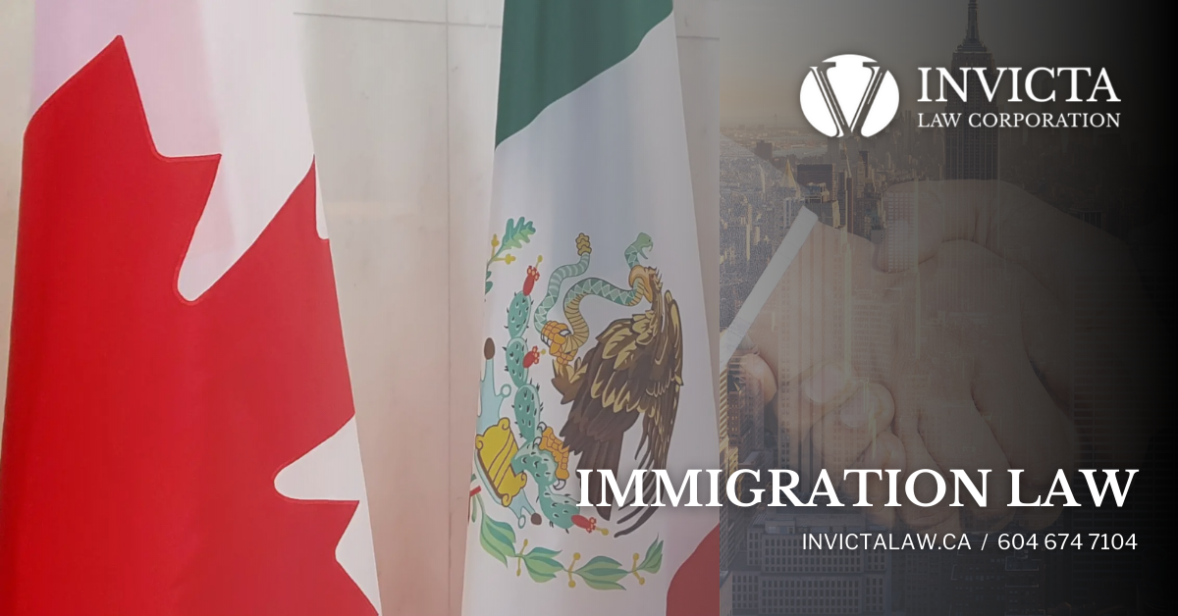Temporary entry to Canada is easier if you are a citizen of the Unites State or Mexico coming to Canada as a “business person.” The Canada-United States-Mexico Agreement (CUSMA) simplifies the process for professionals, tradespeople, investors, executives, and business visitors who want to work temporarily in Canada.
What is CUSMA?
CUSMA is the free trade agreement that replaced the North American Free Trade Agreement (NAFTA). Like NAFTA, CUSMA is a reciprocal treaty that joins Canada, Mexico, and the U.S. into a bloc with lowered barriers to promote trade. In addition to relief from tariffs and other incentives to promote North American import and export, CUSMA promotes trade by allowing selected categories of temporary workers to access each other’s country to sell, provide goods or services, or trade and invest (“Temporary Entry for Business Persons”).
Who qualifies as a “Business Person”?
CUSMA creates four special categories of “business persons” whose activities are related to the trade of goods or services, or to investment:
- CUSMA business visitor: a person engaged in international business activities related to research and design; growth, manufacture and production; marketing; sales; distribution; after-sales service; and general service.
- CUSMA professional: a person who will be working in Canada in one of over 60 listed professions under a pre-arranged employment contract.
- CUSMA intra-company transferee: a manager, executive, or person whose job involves specialized knowledge who is being transferred to Canadian to work for a branch, subsidiary, or affiliate of their Mexican or US employer.
- CUSMA trader and investor: a person engaged in substantial trade in goods or services between the U.S. or Mexico and Canada, or who has invested a substantial amount of capital in Canada.
How does CUSMA make temporary entry to Canada easier?
The immigration provisions of CUSMA simplify the temporary entry process for US and Mexican citizens in many ways, including:
- CUSMA eliminates the need for a Labour Market Impact Assessment (LMIA) for all business persons covered by the treaty.
- CUSMA allows business visitors to enter Canada for business purposes without a work permit. The other three categories require a work permit.
- The CUSMA work permit application process is expedited. For example, professionals can apply at a port of entry (e.g., airport or border crossing). It is also possible to apply for a CUSMA work permit in advance at a visa office before coming to Canada.
- CUSMA work permits are granted for the length of the contract, up to a maximum of twelve months. If your work in Canada is for more than twelve months, a renewal of the work permit can be requested.
What documents are needed for a CUSMA application?
You must provide proof of American or Mexican citizenship to apply to work in Canada under CUSMA. Beyond that, the required documents will depend on your category. For example, if you are applying to enter Canada to install, repair, or service commercial or industrial equipment or machinery, or computer software (“after-sales service”), you must submit copies of the original sales agreement, and warranty or service agreement, which clearly support the purpose of entry. If you are seeking to enter Canada as a professional, you will need to provide proof of employment in Canada (e.g., offer of employment or employment contract with a Canadian business) as well as proof of your education and credentials.
Who can help with a CUSMA application?
If you would like to know if you are eligible for temporary entry to Canada under CUSMA, or would like help with a CUSMA application, contact the immigration professionals at Invicta Law Corporation today. If you aren’t eligible for entry to Canada under the CUSMA, you may still qualify under the general provisions governing temporary workers—talk to us to learn about your options.





